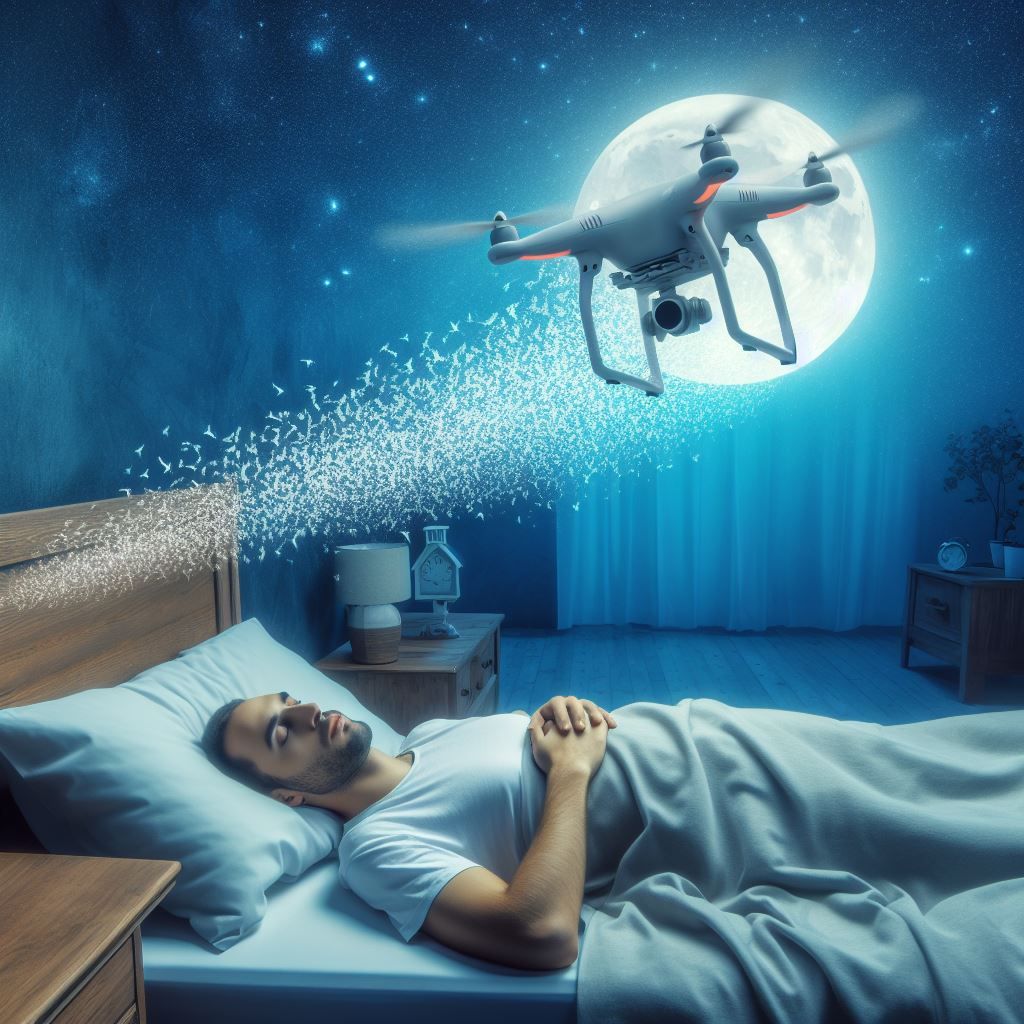In a groundbreaking development that seems straight out of science fiction, the United States and Australia have jointly created a drone capable of entering the realm of dreams. Codenamed “Project Night Mare,” this ongoing covert endeavor was officially declassified on Monday, unveiling a technological marvel that promises to revolutionize surveillance and military operations.
The revelation of Project Night Mare marks the culmination of years of secretive research and collaboration between the two nations. It represents a significant leap forward in both scientific understanding and military capabilities.
The genesis of Project Night Mare can be traced back to studies conducted in the 1990s, which posited that dreams occur in a realm beyond the physical world, accessible from multiple points of entry. Building upon this theoretical foundation, researchers embarked on a journey to develop a means of accessing and maneuvering through this non-corporeal realm.
The result is a fleet of drones equipped with advanced technology that enables them to penetrate the dream world with unprecedented precision. These drones are capable of conducting surveillance and executing military operations in a realm previously thought to be beyond human reach outside of personal dreams that occur during sleep.
Government sources, speaking on condition of anonymity, have assured the public that Project Night Mare poses no threat to privacy or civil liberties. They emphasize that the primary focus of the initiative is on counter-terrorism measures and enhancing national security.
“These drones are a vital tool in our efforts to combat emerging threats and protect our citizens,” remarked a high-ranking official involved in the project. “By extending our reach into the realm of dreams, we gain valuable intelligence and preemptive capabilities that were once unimaginable. Besides, if you have nothing to hide, you have nothing to worry about.”
Despite assurances from government sources, concerns have been raised about the implications of such technology. Critics argue that the ability to infiltrate the subconscious mind raises profound ethical and philosophical questions, particularly regarding the right to privacy and the nature of consciousness itself.
Furthermore, the potential for misuse or abuse of this technology cannot be overlooked. The prospect of government agencies or military forces gaining unfettered access to individuals’ dreams raises troubling possibilities, reminiscent of dystopian visions depicted in literature and film.
In response to these concerns, proponents of Project Night Mare emphasize the strict protocols and safeguards that govern its use. They stress that access to dream data is tightly controlled and subject to rigorous oversight, with clear guidelines in place to prevent unauthorized intrusion or exploitation.
“The development of this technology has been guided by principles of transparency, accountability, and respect for individual rights,” affirmed a spokesperson for the joint U.S.-Australia task force behind Project Night Mare. “Most of your dreams are just non-sensical situations like fishing on a lake in the mountains with some guy you knew back in college, and it’s not really him, but it is, and you just know there’s something lurking underwater that makes you uncomfortable but you’re fishing anyway. If that gets interrupted by flying drones shooting lasers once in a while, I mean, really what have you lost? And yes, if you’re killed in a dream, you die in real life, that much has been proven to be true, sure, but these things would only be targeting confirmed military targets. Look, we recognize the sensitive nature of this endeavor and are committed to upholding the highest ethical standards.”

As news of Project Night Mare spreads, reactions vary widely among the public. Some express fascination and awe at the possibilities unlocked by this technological breakthrough, while others voice skepticism and apprehension about its implications.
For now, the full extent of Project Night Mare’s capabilities and applications remains shrouded in secrecy, as governments continue to refine and expand upon this groundbreaking technology. But one thing is clear: humanity has crossed a new frontier, venturing into the realm of dreams with both excitement and trepidation.
The Ghost of Andrew Crowe




